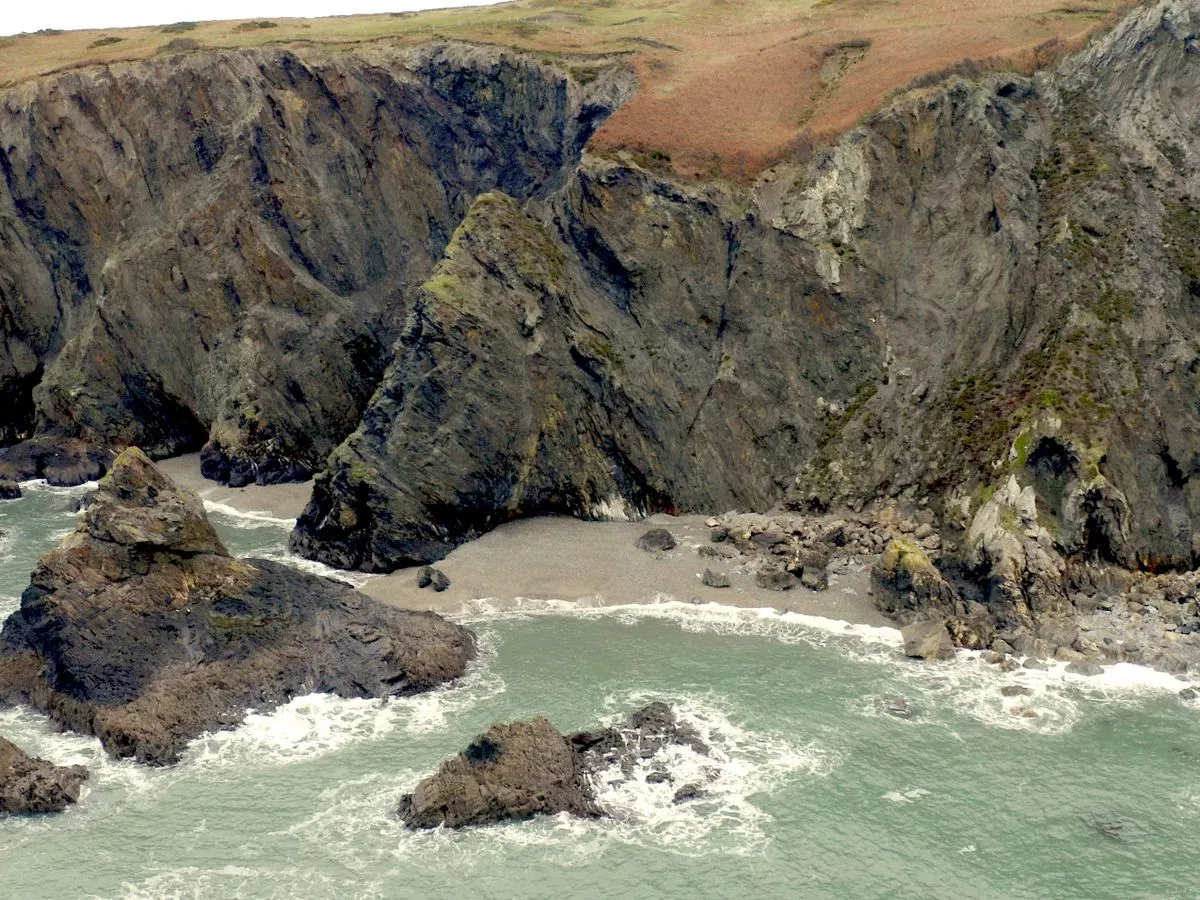Copyright walesonline

In the summer of 1983, the peace of a quiet Welsh coastal community was shattered by one of the most extraordinary police investigations to ever take place in the UK. The setting was Newport , Pembrokeshire , affectionately known by locals as "the town of heaven". It was the last place anyone expected to find at the centre of an international smuggling ring. But that summer, the peace was disrupted by the discovery of a mysterious underground chamber, rumours of international smugglers, and an investigation that extended from Pembrokeshire’s rugged coast to Scandinavia and the Middle East. Now, more than 40 years on, a new two-part S4C documentary returns to the mystery that gripped a community and baffled investigators. For the latest TV and showbiz gossip sign up to our newsletter Ymgyrch Seal Bay revisits the case with rare interviews and dramatic re-enactments, bringing the events of that extraordinary summer vividly back to life. A local man caught up in the plot has spoken out for the first time, but such is the secrecy, his words are being performed by an actor to protect his identity. "I’ve consciously left it behind for years and years," he says. The story begins on a stretch of Pembrokeshire coastline near Newport, where local fisherman Andy Burgess spotted something unusual - a tarpaulin covering part of a remote beach called Pwll Coch and known locally as Seal Bay, a beach that could only be reached by sea. Concerned, he contacted the coastguard. When the team arrived, led by local coastguard officer Essex Havard Snr, they were approached by a man who appeared suddenly from behind a rock. He claimed they were "practising for a Greenland expedition". Havard and his crew were unconvinced. "It didn’t feel right," he later recalled. Burgess’ quick call had set in motion one of the most extraordinary investigations in Welsh criminal history and from there, a web of intrigue began to unfold. Local residents had noticed unfamiliar cars - a Porsche, a Range Rover, even a white Rolls-Royce - appearing on country lanes where tractors were more common than sports cars. Strangers flashed £50 notes in the local pub and then came the discovery that no one could explain: a hidden hatch on the beach at Traeth Cell Hywel. Beneath it lay a man-made underground room, stocked with food, radio equipment and fibre-glass resin — “like something straight out of James Bond,” as one local man described it. Detective chief inspector Derek Davies and detective Don Evans of Dyfed-Powys Police led the operation. Within days, arrests followed. Three men - Robin Boswell, Ken Dewar, and Sam Spanggaard - were taken into custody. Spanggaard, a Danish national known as "the man with the rubber face", was already infamous across Europe as an escaped drug trafficker but the police faced a serious problem: there were no drugs. The supposed contraband had vanished, and without physical evidence, the case risked falling apart. Behind the scenes, the detectives began to suspect there might be someone local, someone who knew the coastline, helping out. The new documentary reveals how that search led officers to a man living quietly in a caravan in rural Pembrokeshire, known in the series only as Jim. "They woke me up one morning in my caravan and I was surprised," he recalls. "I thought I’d got away with that. I wasn’t used to dealing with police lot. They piled it on and frightened me." Over the course of 36 hours, Jim gave an extraordinary account of his involvement with Boswell and his crew. According to former detective Evans, "It was the best statement I’d seen in the whole of my service." He had once modified cars for Boswell and had been drawn into what he thought was "something adventurous". What began as mechanical work soon spiralled into a plot that stretched from Pembrokeshire to Morocco and beyond. Through interviews with former detectives and journalists, viewers will see how the name Robin Boswell surfaced again, this time hundreds of miles away, in a separate drugs inquiry in England. A link emerged between Boswell, his ex-wife Susan, and a man named Donald Holmes, who had been under surveillance by the Metropolitan Police for suspected cocaine trafficking. When officers from Sussex arrived in Wales, the pieces of a much larger puzzle began to fall into place. "He was referred to us as a cocaine importer," recalls one English detective. "That’s why we started gathering intelligence on him in the first place." What followed was a complex, multi-agency operation spanning London, Hampshire, and Pembrokeshire. Police searches uncovered coded documents, photographs, and financial records suggesting an international smuggling network. Though some details remain shrouded in mystery, the investigation culminated in one of Wales’ most dramatic trials. For the people of Newport, the events of 1983 still echo through local memory. "Everyone knew everyone," recalls Wendy Phillips. "Everyone knew each other’s business - that’s just how you were brought up." The documentary uses those memories to powerful effect, combining the voices of local residents with reconstructed scenes that transport viewers back to that tense summer. In the TV programme, Jim’s words are recreated through powerful re-enactments, woven with archive footage and contemporary interviews with the detectives who cracked the case. While the first part of the documentary explores the discovery of the underground chamber and the arrests that followed, the second part expands the investigation’s reach far beyond west Wales. The re-enactments, filmed on location around the Pembrokeshire coast, capture the eerie beauty of the setting - the cliffs, the coves, and the quiet lanes where luxury cars once appeared without warning. "People forget how small these communities were," says Essex Havard Jr. "Something like that happening here - it was unbelievable." Ymgyrch Seal Bay is not just a crime story. it’s a portrait of a community that found itself grappling with loyalty, fear, and fascination, and of a man who, four decades later, finally tells his side of the story. "I can’t say I’d like to do that again," says Jim, reflecting on his time with the smugglers. "But I don’t say that I regret it either, really. Some of it was very exciting, you know." Catch up on the two part documentary on iPlayer.



